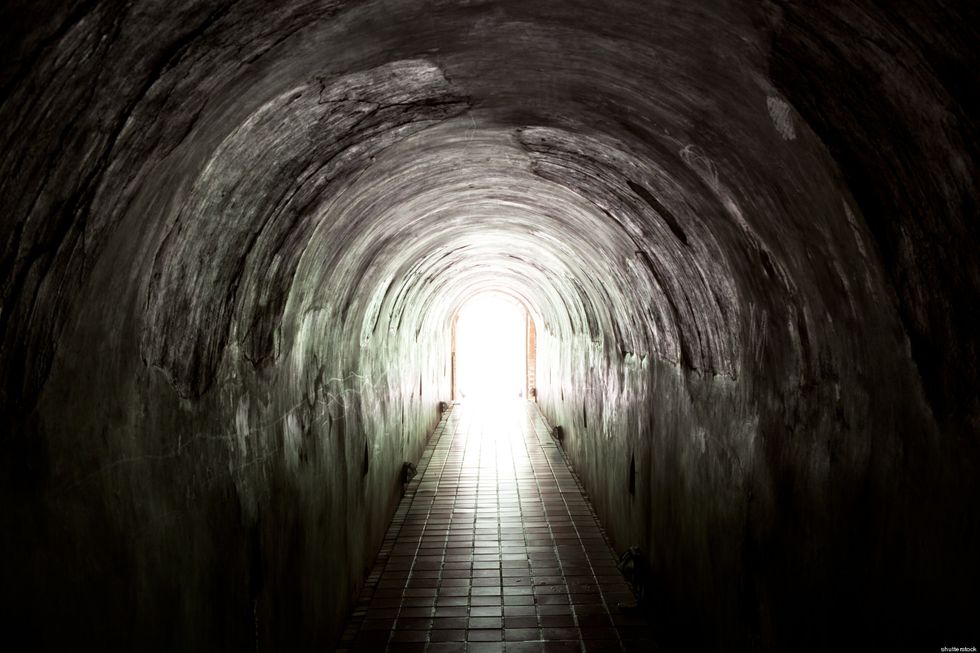Faced with the mortality of our own existence, at some point we stop assuming that a tomorrow will exist and contemplate what happens when that tomorrow does not come. The inevitability of death has led many to ponder what, if anything, comes after this life. Theologians, scientists, and philosophers alike have attempted to answer this question for centuries. In his text, Meditations, Marcus Aurelius, a stoic from ancient Rome, applies the Philosophy of Stoicism to address not only how one should live their life with death on the horizon but also thoughtfully reflects on various scenarios of what happens when we die. This text is not only captivating in its thoughtful reflection on how death can offer meaning to life but also provides an honest response to what happens when we die.
Stoicism largely focused on providing guidelines of how one should live their life. The stoics believed that life should be lead through actions rather than words. They felt that the best way to be virtuous was not to just discuss it but to actually practice it. Most of the ideas expressed in this piece suggest death from an apathetic and realistic perspective. Death is described as something inevitable and is so disconnected from emotion that Aurelius might as well be talking about the reality of tossing a stone in the air will result in it falling to the ground.
With this in mind, the idea being portrayed is that death is a normal part of life and should not be feared, but rather something that is a natural function. Yet, Aurelius employs death as a motivator for life. Death is used to inspire people to live good lives and to shun things of little importance like being concerned with fame and remembrance, rather focus on important things like virtues. One of the most salient pieces of advice found in Meditations is, "Do not live as if you have endless years ahead of you. Death overshadows you. While you’re alive and able- be good." While brutally honest, and a bit hard to come to terms with, I find this to be a crucial perspective on how we should live our lives. Acknowledging that there are many different perceptions of what happens when we die, this particular quote stood out to me as a call to make more of one's life knowing the possibility that there may not be another one after this.
As for death in itself, Aurelius offers various explanations about what happens after death which offers an honest response to the question of: "what happens when we die?" which is, we truly cannot know.
One such explanation embodies the concept of reincarnation. The idea being when we die we are recycled back into the world- we are not truly gone rather changed. One of the most powerful claims in his text reaffirming this conception is, “What dies doesn’t vanish. It stays her in the world, transformed, dissolved, as parts of the world, and of you. Which are transformed in turn-without grumbling.”
Another explanation provided is that when we die we enter into a new type of existence, one could say, we enter into a new form of life, “if our experience changes, then our existence will change with it- change, but not cease.” This is perhaps the most comforting result of death as it promises a second chance at life whether it be on Earth or in another state of existence perpetuated by a religion such as Heaven or Jannah.
Aurelius' final explanation of death is one of uncertainty, he speaks of both the possibility of a life after death and the possibility of there being nothing. I find this explanation to be the most reflective and honest as he truly addresses not only the common fear of death but also refutes that fear with a logic that I find oddly comforting. “Fear of death is fear of what we may experience. Nothing at all, or something quite new. But if we experience nothing, we can experience nothing bad.”
The one simple truth the Aurelius promotes throughout all of his explanations is that death is inevitable and is not something that is bad rather is simply a process that nature demands of us. "Death: something like a birth, a natural mystery, elements that split and recombine. Not an embarrassing thing. Not an offense to reason, or our nature. That sort of a person is bound to do that. You might as well resent a fig tree for secreting juice. (Anyway, before very long you’ll both be dead-dead and soon forgotten)".
















